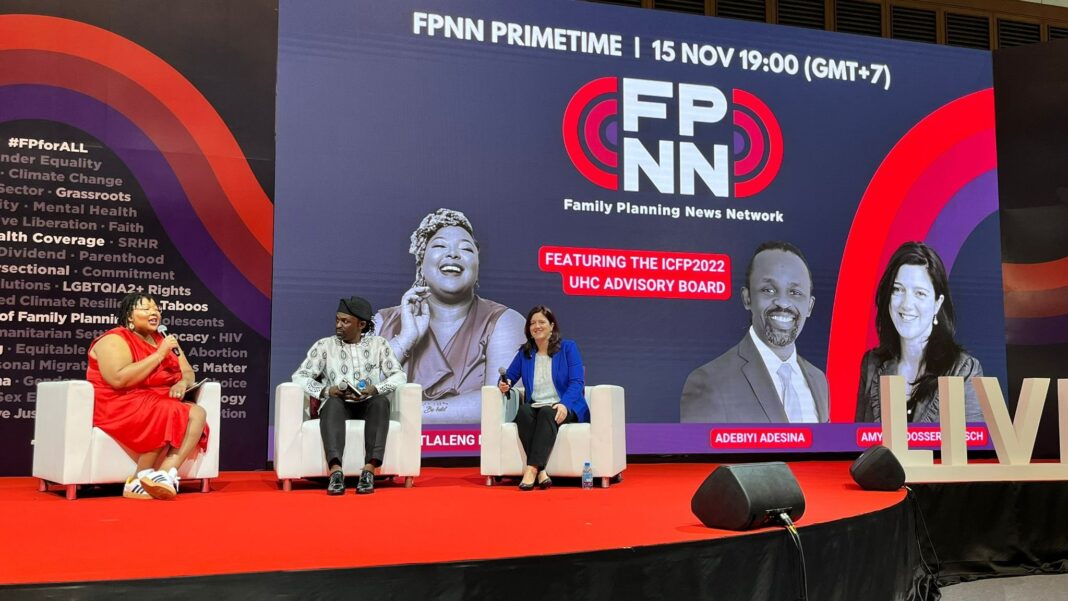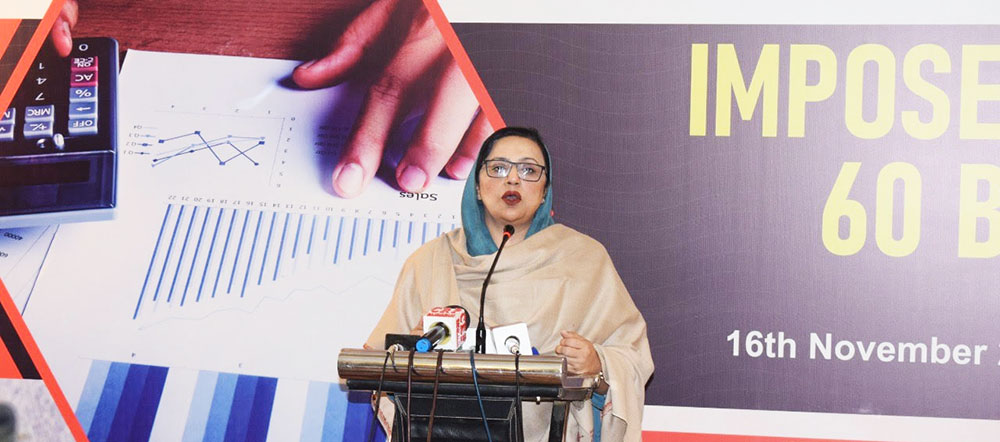By: Asim Nawaz/Editor
PATTAYA, Thailand: Ten years after the 2012 London Summit on Family Planning, the 2022 International Conference on Family Planning (ICFP) celebrated the fact that tens of millions more women today are using a modern method of family planning, and a growing number of governments, corporations, funders and non-governmental organizations are pledging to take specific actions to expand access to voluntary, rights-based contraception.
At the same, the world’s largest scientific conference on family planning and sexual and reproductive health and rights (SRHR) highlighted the urgency of this moment, particularly as COVID-19 and other global crises continue to divert healthcare funding from family planning efforts.
“Even before the COVID-19 pandemic, at least half of the world’s population could not obtain essential health services, including family planning services,” said Jose “Oying” G. Rimon II, senior scientist and director of the Bill & Melinda Gates Institute for Population and Reproductive Health, and chair of the ICFP International Steering Committee. “Globally, we are also seeing threats to sexual and reproductive health and rights from conservative political pushback, and inequality is still a considerable factor, with health interventions varying substantially within and across countries.”
Announcements and Commitments
FP2030, the only global partnership centered on family planning, released new data during a news conference at ICFP2022 that revealed an estimated 371 million women of reproductive age now use a modern method of family planning, which is 87 million more than just a decade ago.
As the preeminent event for countries, organizations, and individuals to make important family planning announcements, this year’s ICFP saw several historic new FP2030 pledges, including a five-year, USD 15 million commitment from the United States Agency for International Development (USAID).
“USAID has been a pillar of this global family planning partnership since we were created ten years ago. In making this commitment today, USAID affirms the success that we have seen: that a diverse global partnership, deliberately working together, can accelerate the use of family planning everywhere,” said Dr. Samukeliso Dube, executive director of FP2030.
The Democratic Republic of Congo also announced at ICFP2022 its commitment to provide every citizen of reproductive age with access to affordable, quality family planning information and services, regardless of social class, geographical location or political or religious affiliation. The country also pledged to increase access to family planning information and services for all adolescents and young people, from 13.1 percent in 2018 to at least 18 percent in 2025.
In a major step towards transforming the global financing landscape for family planning, eight governments – Chad, Democratic Republic of Congo, Kenya, Ethiopia, Madagascar, Maldives Nigeria, and Uganda – announced commitments at ICFP to increasing their countries’ domestic budget allocations for contraceptives.
Organon, a global women’s healthcare company, also announced its formal commitment to help prevent 120 million unintended pregnancies by 2030 by scaling access to contraceptive options for more than 100 million women in low- and middle-income countries, in addition to strategic partnerships focused on education, training, advocacy, and youth engagement.
This year’s conference took place against a global backdrop of growing extremism and erosion of gender equality and reproductive rights. Several sessions addressed what the community can and should do to protect and advance reproductive rights, and drew on expertise from different regions and settings – including crisis settings.
Youth were a driving force behind ICFP2022. In the conference’s closing plenary session, youth advocates from around the globe gathered to share personal stories from their advocacy work, and to present a Global Roadmap for Action for Adolescents and Youth Sexual and Reproductive Health and Rights (AYSRHR). The roadmap – designed and led by youth in collaboration with over 40 youth-led organizations – sets out 2030 goals, priorities and recommended actions, showing unity in the expression of young peoples’ SRHR needs and values across the world.
Awards
Several awards were bestowed upon individuals who have made significant contributions to the family planning field. In the conference’s opening ceremony, the Global Humanitarian Award was given to Daniel and David Zuellig from the Zuellig Family Foundation, a leading provider of innovative healthcare solutions in the Philippines; and Mechai Viravaidya, founder and chair of the Population and Community Development Association (PDA), for his groundbreaking HIV/AIDS prevention activities and commitment to community-based family planning services.
The conference honored five individuals with a Lifetime Achievement Award: Fatimata Sy, former director of the Ouagadougou Partnership Coordination Unit; Benjamin D. De Leon, president of The Forum for Family Planning and Development, Inc.; Khunying Kobchitt Limpaphayom, MD, Professor Emeritus, Department of Obstetrics and Gynecology, faculty of Medicine, Chulalongkorn University; Cheikh Seydil Moctar Mbacké, senior fellow at the Center for Research on Applied Economics and Finance at the Université de Thiès in Senegal; and Phil Harvey, founder of PSI and DKT International (Mr. Harvey also co-founded Marie Stopes, which is now MSI Reproductive Choices).
Until his passing in 2021 at the age of 83, Harvey continued to serve as chairman of DKT International and was a champion of reproductive rights and civil liberties. He is well-known and regarded for pioneering large-scale social marketing programs for family planning and HIV/AIDS prevention in 57 countries across Africa, Asia and Latin America. The Phil Harvey Innovation Award was created and granted this year to three individuals who embody Harvey’s legacy of entrepreneurialism and impact: Innocent Grant; Laura Ramos Tomás; and Tushar Singh Bodwal. Each winner was granted a USD 10,000 award from DKT International to further their bold, rights-based work that leverages the private sector, and will receive two years of technical support.
Community Voices
Elevating voices has long been a priority for ICFP, and community-driven content was a focal point throughout this year’s conference. In the lead-up to ICFP, community members were invited to share stories on the power of family planning in their own lives, as well as their families and communities. There was also dedicated ICFP Community Action programming designed to leverage the expertise and reach of IFCP partners and supporters, and celebrate the diverse perspectives of the family planning community. This year marked the launch of ICFP Live and the Family Planning News Network (FPNN), which brings together a network of journalists and storytellers to produce original programming, including live interviews, panel discussions and news events, for in-person and virtual audiences. With an estimated 50,000+ community members from around the globe, ICFP Live and FPNN featured short, partner-driven sessions on topics like sex taboos, male engagement, emergency contraception, abortion rights, climate change, SRHR, planetary health and more.








